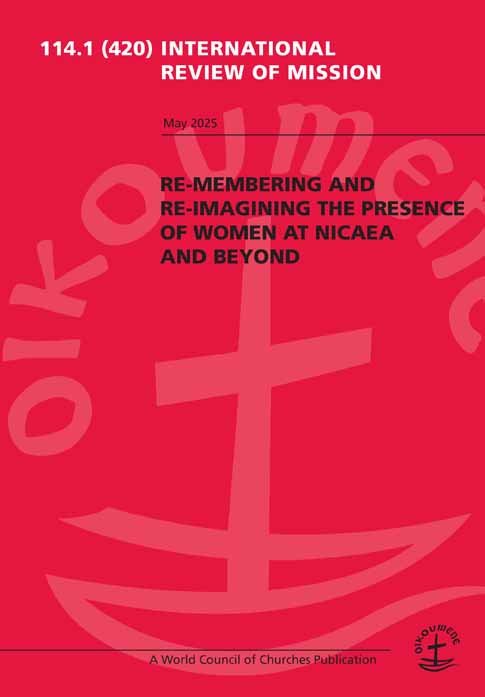Women in Nicene History Embodied in Leadership in Councils of Churches in Africa
Perspectives from the All Africa Conference of Churches
Abstract
In examining the gender dimensions of the Council of Nicaea and its outcomes, this article examines the lived experiences of the councils of churches in Africa – with particular reference to the All Africa Conference of Churches and its member churches in Southern Africa – as institutions created to embody the faith, unity, and mission of the church. The key question examined is the following: What has been the role of women in defining and leading the faith, unity, and mission of the church in the councils of churches in Southern Africa (Zambia, Zimbabwe, and Malawi) and the All Africa Conference of Churches in particular? This article is qualitative, using historical methods and gender analysis to examine how women leadership in the councils cited have embodied the faith, its unity, and mission to achieve gender equality as expressed in the imago Dei.




